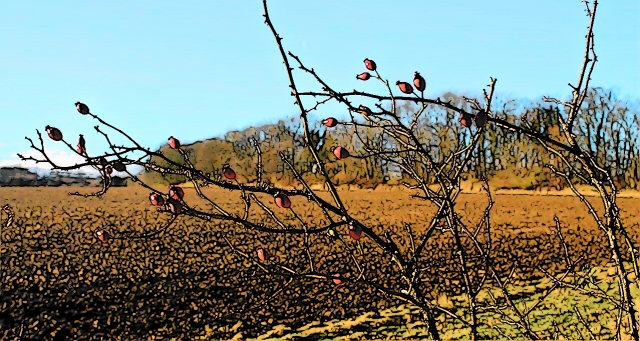 HUSH and hide behind this bank of briars while cavalry passes. Petilius Cerialis has sent his army north from York to conquer the Brigantes and drive young warriors from their fortress. Hear the clank of iron and snorting horses. Rome never looks where she treads. Always her heavy hooves fall . . .
HUSH and hide behind this bank of briars while cavalry passes. Petilius Cerialis has sent his army north from York to conquer the Brigantes and drive young warriors from their fortress. Hear the clank of iron and snorting horses. Rome never looks where she treads. Always her heavy hooves fall . . .
The imagination is a chaotic place to visit. Sometimes it can lead the unwary along dark tunnels or into blind, repetitive alleys. It can sweep you up and carry you along like the brown waters of a flooded river. It refuses to sleep. When your body rests, your imagination roams unfettered. It???s always one step ahead, but not necessarily in the right direction. And it???s roaming now.
Less than four miles from my house lies a collection of earthworks and ditches that historians believe was the capital of Brigantia ??? the largest of the Celtic kingdoms of the late Iron Age and Roman period. That???s where I???m heading, boots clumping at marching pace.
Brigantia occupied what is now Lancashire, North Yorkshire, County Durham and eastern Cumbria, give or take a few hills and valleys. Its tribal capital was said to have been Stanwick Camp, an enclosure of 740 acres (300 hectares) and four miles of ramparts, situated at the foot of the Pennines, in North Yorkshire between the River Tees and Scotch Corner. It???s an intriguing place, and I can reach it in just over an hour if I march faster than a legionary.
 So I???m off across fields and along footpaths, passing over the Great North Road on one of those bridges built for farmers, and into the briar banks and pasturelands of Brigantia. Must keep moving because the Ninth Legion is pushing north. This is AD71, after all. Isn???t it? Imagination is a curse when the gremlins have cranked it up a gear and it???s two steps out in front.
So I???m off across fields and along footpaths, passing over the Great North Road on one of those bridges built for farmers, and into the briar banks and pasturelands of Brigantia. Must keep moving because the Ninth Legion is pushing north. This is AD71, after all. Isn???t it? Imagination is a curse when the gremlins have cranked it up a gear and it???s two steps out in front.
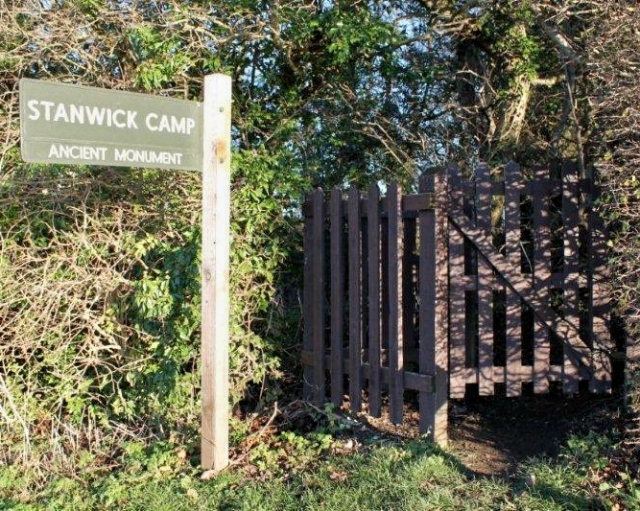 Not only that, but I???ve got a song in my head that I can???t get rid of ??? Billy Bragg singing Rudyard Kipling???s poem A Pict Song. It???s about little people undermining the might of Rome. We are the worm in the wood. We are the rot in the root.
Not only that, but I???ve got a song in my head that I can???t get rid of ??? Billy Bragg singing Rudyard Kipling???s poem A Pict Song. It???s about little people undermining the might of Rome. We are the worm in the wood. We are the rot in the root.
Kipling. Not so sure where I stand on this fella. Strange sort. But when, like me, you???ve risen to the rank of sixer in the Wolf Cubs, you can???t help but have a sneaky admiration for the old colonial bugger. Sixer. That???s the highest office of authority I???ve ever held, not counting being secretary of Barton allotment association.
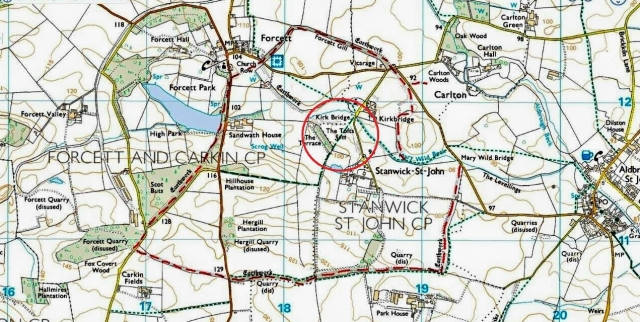
The ramparts of Stanwick Camp are marked in red dashes. Public footpaths follow some, but not all, of the route. There was also an inner fortification. at The Tofts, within the red circle. Click for larger image.
Stanwick Camp is a great place for a poke about. I reach it without incident, but I did feel an arrow whizz over my head and hear someone shouting in Latin when I crossed the motorway. At least I think it was Latin.
There???s an access point to the highest surviving section of rampart a few yards to the east of Forcett village. The 16ft-high dyke and trench were excavated in the early 1950s by Sir Mortimer Wheeler, who reconstructed a stretch of battlement with stones retrieved from the dig. His wall is still standing and is maintained by English Heritage.
Wheeler was a grand old chap. I once saw a 1950s film clip of him handling an ancient vase, and when passing it to a colleague he pretended to drop it. Oooops. Everyone gasped. Great entertainer for an archaeologist. Much funnier than Kipling.
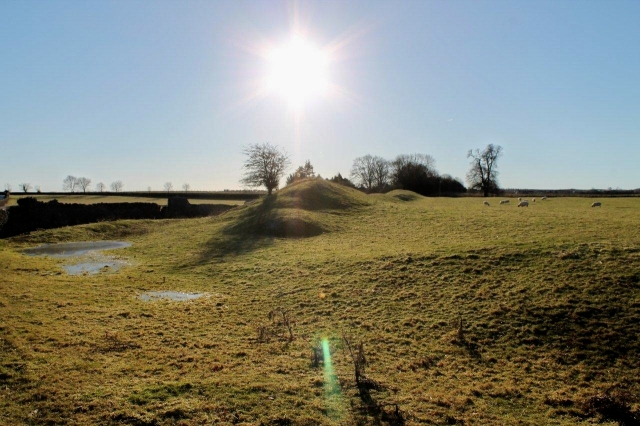
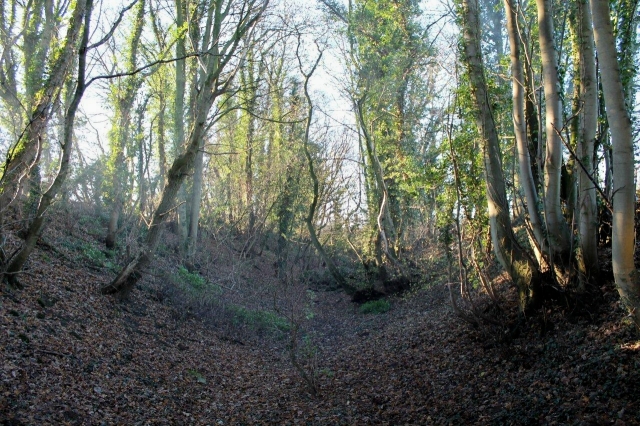
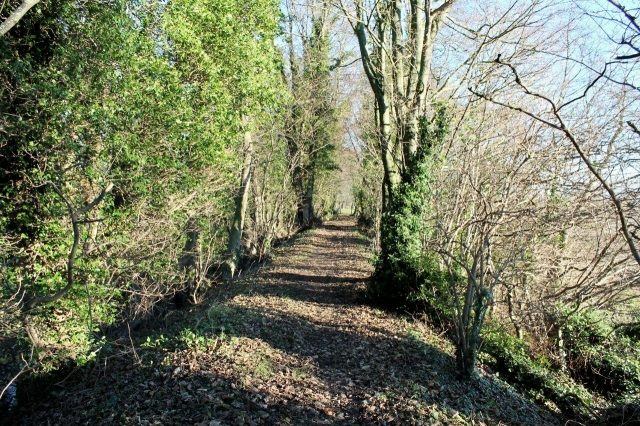
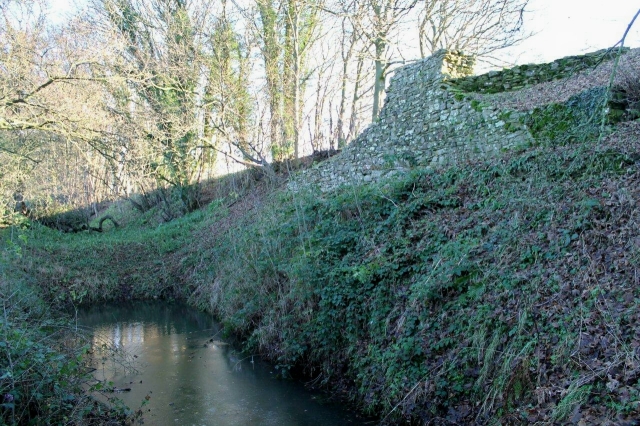
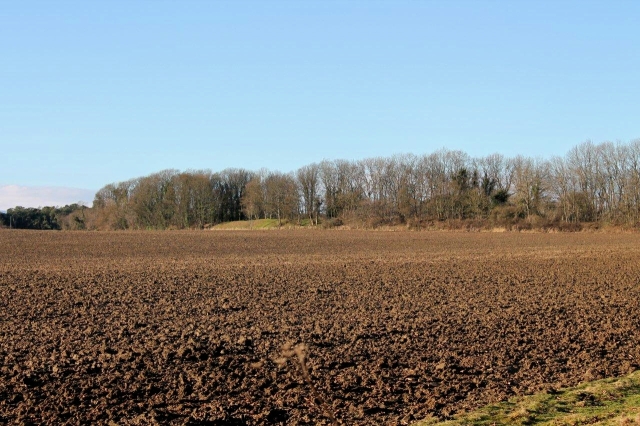
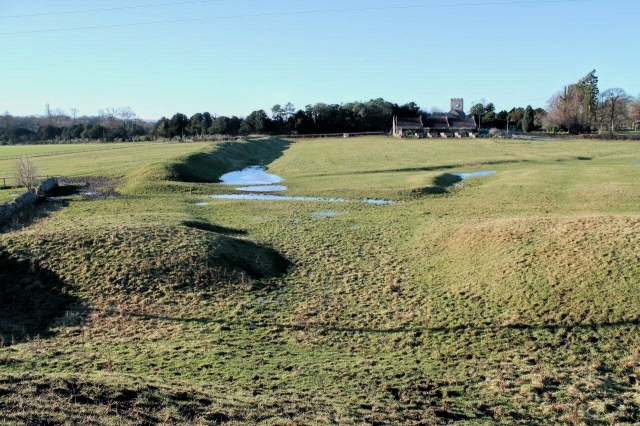
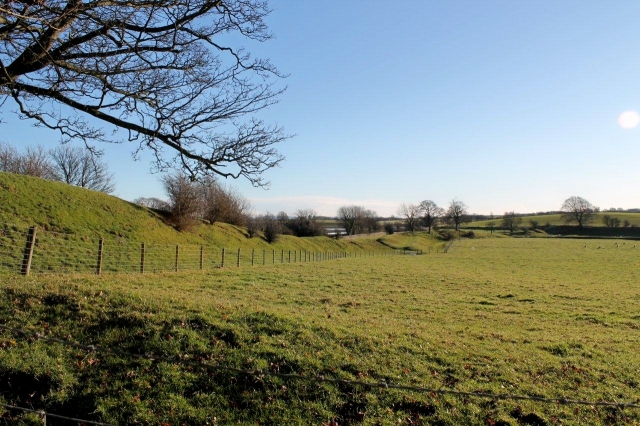 I crash through the undergrowth, flounder through mud and crunch through that crispy white ice that forms on shallow puddles. These ramparts are immense. They range as far as the eye can see, but in places they have been lowered by weather and erosion, and in parts obliterated by agriculture and generations of indifferent landowners.
I crash through the undergrowth, flounder through mud and crunch through that crispy white ice that forms on shallow puddles. These ramparts are immense. They range as far as the eye can see, but in places they have been lowered by weather and erosion, and in parts obliterated by agriculture and generations of indifferent landowners.
I complete the entire circuit of fortifications like a Brigantian warden of the walls on his daily rounds. I should have painted tattoos on my face before I set out. Blue eyeliner would have worked. I bet I???d look good in that.
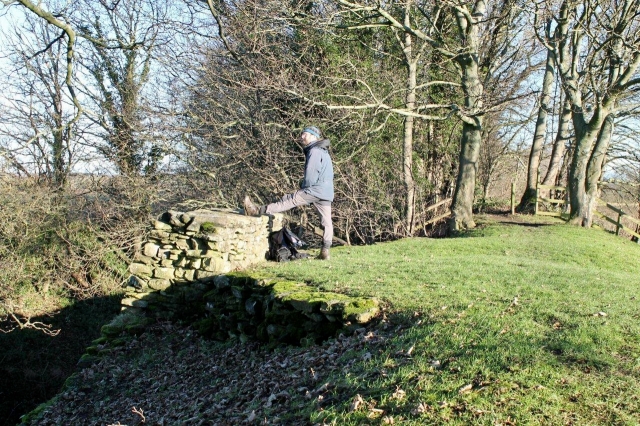
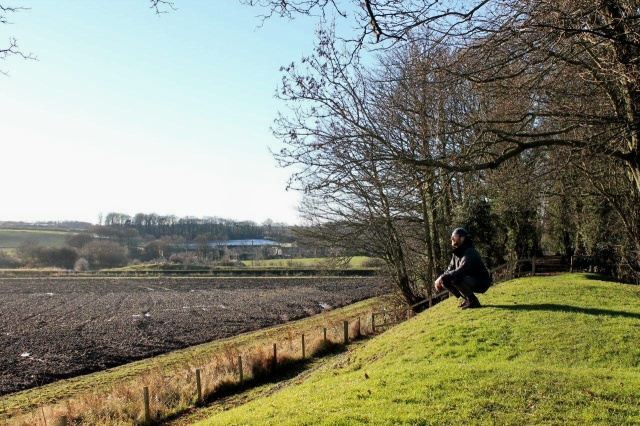 So what happened in AD71? What was all the fuss about?
So what happened in AD71? What was all the fuss about?
Brigantia had been a client state of Rome under its queen, Cartimandau, since the days of the conquest. But in AD69 Venutius, her former husband and latterly embittered enemy (she???d dropped him and shacked up with his armour-bearer), ousted her, claimed Brigantia for himself, launched what transpired to be his second and final rebellion against Roman domination and caused trouble across the North. I expect that taught her a lesson.
According to some sources, the Ninth Legion ??? Legion IX Hispana ??? the very same body of men that popular legend maintains disappeared without trace in the land of the Picts, was sent to sort him out. Whether this is true or not we shall never know for certain.
What we do know is that in AD71 the Romans set out to crush the Brigantes, York was established as a military centre by the Ninth Legion, Venutius and Cartimandau disappeared from history, and Stanwick Camp was abandoned either then or soon after to begin its slow decline into obscurity.
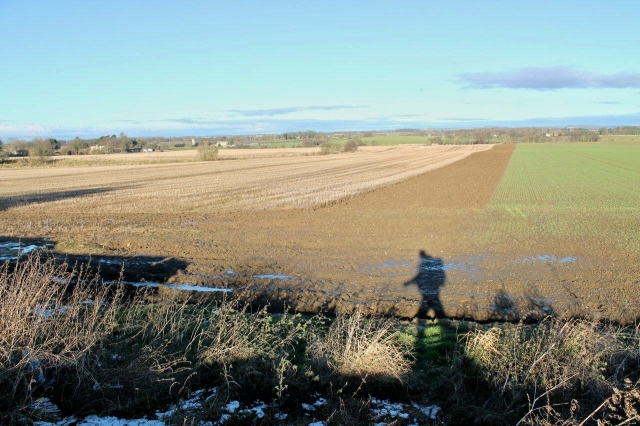 I enjoy walks like this. It???s that feeling of absolute powerlessness when you stand on an earthwork that???s more than 2,000 years old, aware that local people raised it with rocks, soil, blood and sweat, but you don???t know how and you don???t really know why. All you know is that once, a long time ago, something extremely important and probably tragic occurred in this place.
I enjoy walks like this. It???s that feeling of absolute powerlessness when you stand on an earthwork that???s more than 2,000 years old, aware that local people raised it with rocks, soil, blood and sweat, but you don???t know how and you don???t really know why. All you know is that once, a long time ago, something extremely important and probably tragic occurred in this place.
And you also know that little people, the underdogs, were trampled into the ground by the might of an occupying force. Three centuries later, however, a tide began to turn. Take it away Ruddy:
A Pict Song
Rome never looks where she treads,
Always her heavy hooves fall
On our stomachs, our hearts or our heads;
And Rome never heeds when we bawl.
Her sentries pass on ??? that is all,
And we gather behind them in hordes,
And plot to reconquer the Wall,
With only our tongues for our swords.
We are the Little Folk ??? we!
Too little to love or to hate.
Leave us alone and you’ll see
How we can drag down the Great!
We are the worm in the wood!
We are the rot in the root!
We are the germ in the blood!
We are the thorn in the foot!
Mistletoe killing an oak ???
Rats gnawing cables in two ???
Moths making holes in a cloak ???
How they must love what they do!
Yes ??? and we Little Folk too,
We are as busy as they ???
Working our works out of view ???
Watch, and you’ll see it some day!
No indeed! We are not strong,
But we know Peoples that are.
Yes, and we’ll guide them along,
To smash and destroy you in War!
We shall be slaves just the same?
Yes, we have always been slaves,
But you ??? you will die of the shame,
And then we shall dance on your graves!
We are the Little Folk ??? we!
Too little to love or to hate.
Leave us alone and you’ll see
How we can drag down the Great!
We are the worm in the wood!
We are the rot in the root!
We are the germ in the blood!
We are the thorn in the foot!
??? Rudyard Kipling











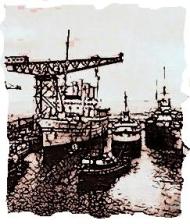
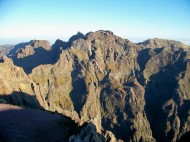
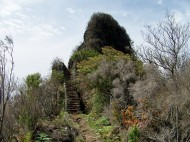

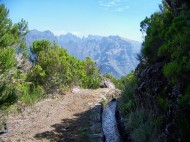


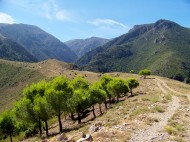
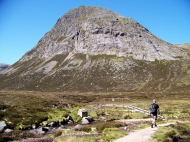
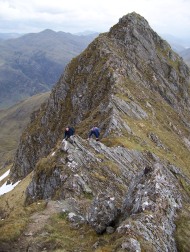
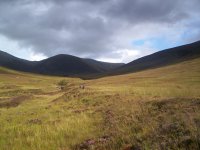
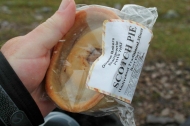
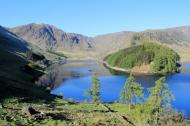
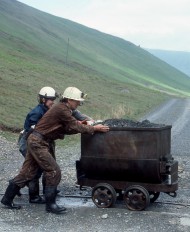
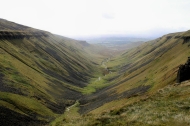

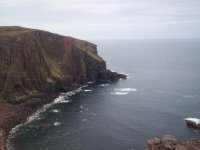
It sounds as if you had that feeling of them breathing gently on your neck.
I can feel them even now, Mrs P. But I’ve got a feeling it’s all in my head. Trouble is I can’t be sure.
Cheers, Alen
Ahhh Eddies back.
Ha ha. Can’t keep a good lorry driver down.
excellent the best blog on here by far, thanks for your time in doing all this, it looked like the weather gods smiled on you
Danny. Where the hell have you been? Me and OM have had search parties out looking for you.
Cheers, Alen. And thanks.
Hi Alen,just got abit fed up of reading about :- light weight, breathable, waterproof, expensive,TGO past present future, gear reviews on the blogs and myself spending a couple of hours after a trip sorting sizing uploading photo’s and writing a semi coherent tale to tie them together.So I decided to have a month off the computer. When I tried to come back on Google had changed it’s cookie policy or something and I had to sign in. It would not accept my password,that had worked for over 10 years, and the same with Win. Live mail, I answered the security questions to try to reset my password to be told that both account names were all ready taken ! Couple of weeks ago I upgraded the hard drive reinstaled windows deleted all accounts and signed up for every thing again
and Bob’s your mothers brother – here I am
cheers Danny
Last I heard from you, you were off up Carlin Gill in the Howgill Fells. That must be six months ago. Good to hear from you. I see you’ve got some new posts up so I’ll take a proper look when I get home from work.
I’m just reading a bit of Roman history right now and I loved this new story of yours. It always is great seeing actual photos of the landscape this history took place in. You don’t often get this. Your blog is always an enjoyable read, so rare to find someone who can actually write and takes great pictures too. I am always looking forward to it.
Hi Vishnevats. Thank you very much for that. Positive feedback is always refreshing and makes everything worthwhile. I wish the pictures could have been better, though. Grassy banks in a flat landscape aren’t easy things to photograph. To grasp the true scale of Stanwick Camp you really have to get your boots on and get in there because it is enormous. The Romans must have been there in their thousands.
Cheers, Alen
Hi Alen, that’s exactly why I love your blog. I’m not likely to ever be able to go to the wonderful places you go to, so I love coming along like one of those small creatures in the Pictish song.
I like that idea of the small creatures. Perhaps there’s a bit of Pict in us all, following in the wake of greater things but all doing our bit in our own way. I’m going to have a think about that one.
Hi Alan,
Great post this one, love these old Roman walks, you kind of feel powerless within the presence of these old ruins, I know I have along some of my travels & its quite difficult to put a few words together on how the whole experience grasp you, except you have with this: ‘All you know is that once, a long time ago, something extremely important and probably tragic occurred in this place.’
Perfectly put.
Take care Alan
Hi Paul. Thanks very much for that. Those Romans got everywhere and had such an impact on our landscape and history, I find the whole period fascinating. I wouldn’t have liked to have lived under them though.
And I wish I’d thought of that Penrith to Ambleside walk along the Roman road before you did. That was a cracker!
Cheers, Alen
Intriguing story, Alen, there are fascinating facts at least occasionally:-)
I wonder if the Romans and the Brigantes had them too the Gremlins. Maybe you should bring your tent with you to North York Moors on a dark night. You might be able to spot strange behaviour caused by Gremlins.
Long live our imagination and God bless archaeologists.
Hanna
Hej Hanna. You always bring a smile to my face ??? and you have cheered up a wet and windy night. Yes, the gremlins have been up to mischief again, and I don’t expect it will be the last time.
As for the archaeologists, where would we be without them? Nothing would ever be explained and we’d be living in ignorance of our past and ourselves. God bless them.
Cheers now, Alen
I love these quiet old places that aren’t quite important enough to have their own visitor centre and information signs, because you usually have them all to yourself. As always, you sensed the spirit of the place and did a great job of describing it. PS Do you think that’s where the word ‘brigand’ comes from?
Hi Jo. According to the battered dictionary on my desk, brigand comes from Briganti, which is Old French for a bandit who fights in mountainous terrain. With Old French being descended from Latin, there could well be some cross-fertilisation there. After all, the words thug and vandal come from tribal groups. It’s an interesting thought.
I hate places with visitor centres, things that have been spruced up National Trust style, and English Heritage flags flying above ancient monuments. I could go on and on but I’m in a pretty good mood and I don’t want to spoil the weekend.
Cheers, Alen
Excellent! Just the sort of thing I love doing too. Have you read Tacitus’ Agricola and Germania? Available here: http://archive.org/stream/tacitusagricolag00taciiala/tacitusagricolag00taciiala_djvu.txt
It provides a wonderful (but one sided) insight into how the Romans dealt with the British. Some of the descriptions of conflict are so interesting. I particularly like the standoff between the Romans and the natives from over the Menai Straits
Hi Colin. No I haven’t read it but I’ve read about it. Thanks for the link. I shall take a good look at it as soon as possible.
Cheers, Alen
I’m always captivated when you describe walking about amongst old Roman ruins, roads and such. Iv’e a deep interest in history but still find it difficult to imagine what I would feel surrounded by Legionairs. You certainly help with that though. Always look forward to your next adventure. Thanks Alen.
Hi Dohn. It never ceases to amaze me that what I write about on my own doorstep can be read by someone in a completely different environment on the other side of the world. Thanks for that.
All the best, Alen
I really enjoyed reading this Alen. I have heard and read about Stanwick Camp but never visited it, which is shameful really considering it is so close.
Hi David. It’s strange, but I tend to bypass stuff on my doorstep too. I’ve lived within sight of the North York Moors for 16 years but have only just started to give them serious consideration. perhaps it’s a grass being greener on the other side of the fence thing.
Cheers, Alen
This was a joy to read, and an area and part of history I too have researched over the years. Venutius was said to have fled to Ireland or a small island near Dublin. I once found a document regarding the island and the lady who lived (owned) on the island. She was a rich hermit, I’ve tried over the years without success to find the same doc on line.
Hi Keith. That’s fascinating. I trawled the internet trying to find references to Venutius and Cartimandau but didn’t hit on the Ireland angle. I’ll have another look sometime because there was a connection with Caratacus that looked interesting ??? namely Cartimandau handing him over in chains to the Romans. It’s a fascinating period, made moreso because we know very little about it.
Cheers, Alen
I believe the Romans took Caratacus back to Rome and made him a free man. I’ll see if I can find the link to the island. I once found it on the map. I too love that period of history. You must climb Inglebourgh, Venutius had a fort on the summit.
Ingleborough would make a welcome change of scenery for me. I haven’t been down that end of the Pennines for many years.
There’s a little here:
Some archaeological evidence from the island of Lambay, and a second century map by Ptolemy, reveal the possibility that some Brigantine elements flee to Ireland and settle there. It is only towards the end of the century that Brigantine artefacts start to appear in Ireland (in the Cork/Waterford area).
That’s absolutely fascinating. Thanks for that. I shall look into it.
Cheers, Alen
Fascinating stuff!
Yorkshire and Lancashire? Ooh – don’t let on. Or perhaps it might be good if that were more wildly known!
Little Warton Crag near home allegedly had a Brigante fort, although there’s no obvious sign of it now. Didn’t Ingleborough have a Brigante fort too?
Hiya Mark. Yes, I???ve heard of a fort on Ingleborough, but I???ve only been up there once and that was circa 1979, and I don???t recall seeing any signs of it. Mind you, I don???t think I was paying much attention at the time because I was knackered. I???ve not heard about the fort on Little Warton Crag, but I do recall crawling about in some extremely dirty iron ore mines beneath Warton Crag a long, long time ago. Perhaps the Brigantes were mining the iron. There???s a thought. Carrock Fell???s my favourite. Sections of the original wall still in situ.
Lancashire and Yorkshire? I???m a Lancastrian who was converted to a Cumbrian by the 1974 boundary changes and now lives in Yorkshire. But I???ve still got the red rose badge from my Wolf Cub???s uniform. By eck.
Cheers, Alen